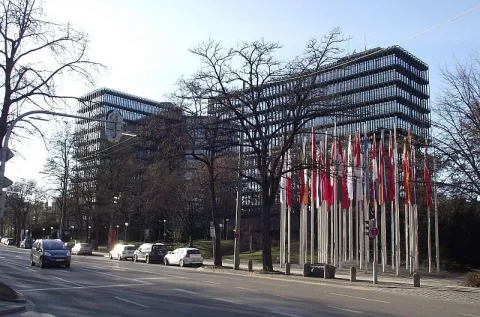Deteriorating patent quality: EPO under fire, management is not impressed
July 5, 2023
The EPO management has been under increasing criticism for its perceived lack of attention for the deteriorating quality of EPO patents. The subject was put on the agenda prominently last year in October by the Industry Patent Quality Charter (IPQC), a group representing a series of major and smaller international corporations, and endorsed by the staff union SUEPO. Apparently it was also brought forward during the meeting of the EPO’s Administrative Council late June by various member states. But in a letter sent two days ago, the EPO refutes most of the IPQC’s quality concerns.

However, it is clear not everyone agrees with the positive message. In meetings last February and May, the IPQC had already expressed its concerns about quality at the EPO and made suggestions for change. And on 22 June, Beat Weibel, driving force behind the IPQC, wrote a letter to EPO president António Campinos, vice-president for the patent granting process Steve Rowan and the members of the Administrative Council, in which he criticized the lack of response to the industry’s quality concerns: ‘We sincerely regret that the EPO did neither accept an invitation to a roundtable in December 2022 nor to the panel discussion in May 2023 in Osnabrück. We even more regret that our request for processual data expressed in our letter of February 8, 2023, has not been answered.’
The letter is interesting as it shows in detail what was discussed in Osnabrück and why the IPQC thinks things are heading in a wrong direction. For example, it pointed out that whereas the industry needs ever more time for drafting patents due to their increased complexity (at Siemens, for instance, 35% more time is invested), time spent for granting a patent application by EPO examiners has decreased by 50%. Beat Weibel summarized some of the concerns on LinkedIn:
- There is a gap between increased investments in careful patent drafting by industry and decreasing time for search and examination at the European Patent Office.
- The patent system needs complete searches and substantive examination for functioning well. German Courts are decreasingly relying on the grant quality of the EPO.
- Complete searches and examination leading to reliable patents are crucial for industry.
- In certain fields, the granting rate is highly depending on the experience of the examiners and three pair of eye quality control isn´t working properly anymore.
- Nearly 90% of all Board of Appeal of the EPO decisions either completely or partly revoke the patent in question. Most of the decisions being based on prior art that could and should have been found in first instance!
- Incentives and working conditions of the examiners are favoring granting a patent over rejecting it because a rejection needs more time and effort and eventually an oral hearing.
As Kluwer IP Law was informed, the quality issue was brought up during the recent meeting of the Administrative Council – likely as a result of the IPQC letter, with several states complaining about the lack of relevant information and the apparent gap between the companies' and the EPO’s view on quality.
The EPO and its staff are fully focused on substantive quality
However, the EPO doesn’t seem impressed. Two days ago, on 3 July 2023, Beat Weibel received an annotated version of his own letter back from EPO vice-president Steve Rowan, refuting and/or denying almost all of the issues brought forward by the IPQC: ‘The EPO and its staff are fully focused on substantive quality. We are proud to be ranked number one for quality by independent IAM surveys for 10 years in a row and strong results from our independent User Satisfaction Surveys. The careful and diligent assessment of patentability requirements is the backbone of the work of the search, examination, and opposition divisions’, was the first comment.
The IPQC letter plus the EPO reaction are available here. In reaction to the IPQC’s invitation to enter into a constructive and continuous dialogue, the EPO wrote: ‘The EPO publishes the most complete data sets of any Office. Full information on quality, technical improvements, social aspects etc can be found in our Annual Report and the complete set of Annexes thereto.’ A remarkable way to address the concerns of an important group of clients.
You may also like















law sniffer
(only) two striking data are provided against the quality of the EPO: the 50% time reduction on a single file which I wonder how was determined, I can impossibly judge this from my (not large) law firm point of view, they must have really reliable insider sources within the EPO to be able to state that. And the 90% of patents revoked or amended at the Board of Appeal: how is this possible? In Opposition the first instance relies on the same arguments and documents (provided by the parties) as the Board of Appeal does, it is not a matter of complete search or examination, is a matter of non uniform application of the EPC within the EPO, so I fear that the figure had been like that also many years ago